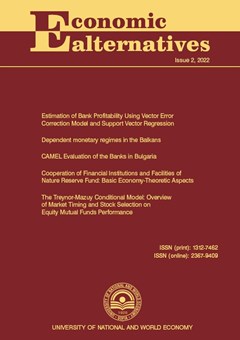Dependent monetary regimes in the Balkans
Authors: Nikolay Nenovsky, Eric Magnin
Abstract
In this article, we look at the main stages of the monetary systems in the Balkans, representing a cyclical alternation of dependent models, each of them effectively serving the relationship of the Balkan peripheral economies with their dominant military, geopolitical and economic centre. This centre of attraction is the anchor against which the monetary regime of the periphery is adjusted. We consider four periods: (i) the building of a national monetary system after long years of Ottoman domination, and especially the accession to the Latin Monetary Union, (ii) the adoption of the rules of the League of Nations and monetary stabilizations based on the gold exchange standard, (iii) the inclusion in the German Lebensraum and the system of currency control and clearings, and finally (iv) the Soviet zone and the COMECON, the mechanism of passive money and the transferable ruble. In the last period we present the Yugoslav monetary regime, which was attached to the West.

